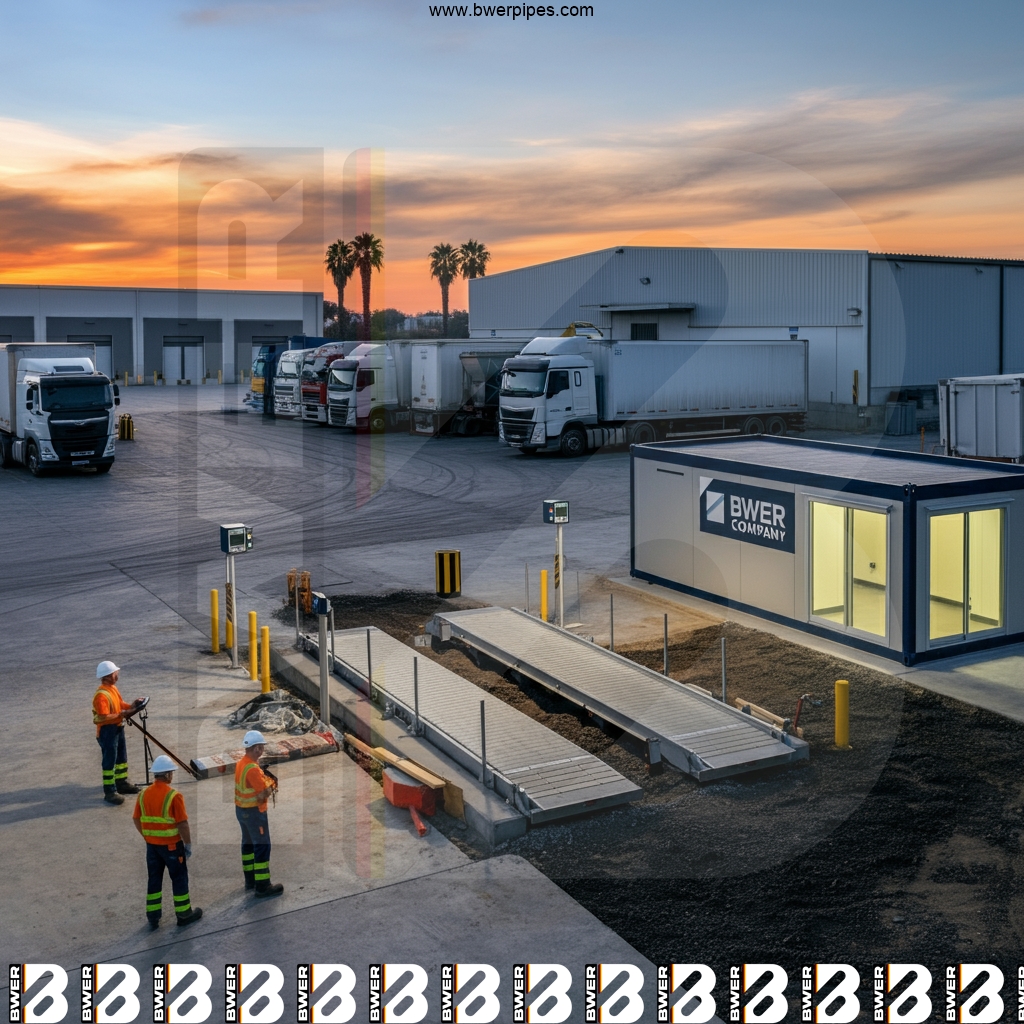In Iraq, the transportation and logistics sector plays a crucial role in infrastructural development and economic growth. With the increasing demand for efficient freight operations, integrating modern solutions like Weighbridges is essential. Streamlining freight operations in Iraq with Weighbridges can significantly enhance accuracy, compliance, and efficiency within the logistics chain. This article explores how Weighbridges are transforming freight operations across Iraq, providing valuable insights into their benefits and application in the field.
The Role of Weighbridges in Freight Management
Weighbridges serve as a cornerstone in freight management by providing precise weight measurements of vehicles on their journey across transportation networks. These large scales are strategically placed at checkpoints or loading zones to ensure that trucks are neither overloaded nor underloaded. Overloading can lead to increased wear and tear on infrastructure, higher fuel consumption, and the risk of fines due to regulatory non-compliance, while underloading may not make full use of a vehicle’s capacity, wasting resources. Thus, Weighbridges are vital in maintaining the delicate balance of maximizing efficiency while conforming to weight limits set by road safety authorities in Iraq.
Further, Weighbridges help streamline documentation processes, offering automated data capture that integrates with logistics software. This technology ensures that all cargo is accurately documented, avoiding discrepancies in shipment records. By enhancing the transparency and reliability of freight operations, companies can build a more dependable supply chain, minimizing delays and optimizing performance across the board.
The Impact of Weighbridges on Operational Efficiency
The integration of Weighbridges into freight operations has a profound impact on operational efficiency. By offering instantaneous and precise weight measurements, Weighbridges minimize the amount of manual labor needed for calculating truck weights, thereby reducing human error and speeding up the loading and unloading process. This precise data also helps in route planning, allowing for optimal distribution of loads which directly translates to fuel savings and reduced transit time.
Another significant advantage is the role Weighbridges play in enhancing safety standards. Overloaded vehicles pose a danger not only to the driver and goods but to public road users as well. By ensuring adherence to weight regulations, Weighbridges contribute to reducing the likelihood of accidents caused by overloaded trucks. In the competitive logistics sector, maintaining a strong safety record is crucial for operational success and customer satisfaction, making Weighbridges indispensable in modern freight operations.
Cost-Benefit Analysis of Implementing Weighbridges
When considering the implementation of Weighbridges, the cost-benefit analysis is a critical factor. While the initial investment in Weighbridge infrastructure might seem substantial, the long-term gains typically outweigh these costs. With automated recording and reporting features, Weighbridges reduce administrative overhead and the possibility of costly errors, translating to savings in labor and operational expenses. Enhanced load management boosts vehicle longevity and efficiency, reducing maintenance costs by preventing overload-induced wear and tear.
Moreover, adherence to load regulations through consistent and accurate weight checks mitigates the risk of incurring penalties. These savings, paired with improved logistics efficiency, offer businesses a competitive edge. Companies that effectively leverage Weighbridge technology are better positioned to offer timely, cost-effective services to their clients, ultimately boosting profitability and market reputation in Iraq’s burgeoning logistics industry.
Challenges and Solutions in Weighbridge Implementation
Despite their benefits, implementing Weighbridges in freight operations in Iraq does present certain challenges. Infrastructure limitations, such as inadequate road networks in remote regions, can complicate the positioning of Weighbridges. To address this, mobile Weighbridge units can be deployed, offering flexibility and the ability to reach more locations without the need for permanent installations.
Another hurdle is the initial setup cost, which can be daunting for smaller logistics operators. However, leasing options or government subsidies could alleviate these financial pressures, making it more feasible for businesses of all sizes to adopt Weighbridge technology. Additionally, ongoing maintenance and calibration are necessary to keep Weighbridges functioning accurately, requiring a dedicated schedule and trained personnel to ensure consistent performance.
Innovative Weighbridge Technologies in Iraq
As technology continues to advance, Weighbridge systems are evolving to offer enhanced features such as real-time data monitoring and predictive analytics. These advancements not only improve the accuracy of weight measurements but also allow logistics operators to anticipate and mitigate potential issues before they arise. Integrating Internet of Things (IoT) capabilities, Weighbridges can now provide live updates across supply chains, enhancing communication and coordination.
Incorporating digital platforms with Weighbridge systems creates seamless interaction with enterprise resource planning (ERP) systems. This connectivity facilitates more comprehensive logistic management strategies that align with operational goals. Logistics businesses in Iraq are increasingly recognizing the value of such integrations, which serve to not just enhance efficiency, but also provide analytics-driven insights necessary for strategic decision-making and improved customer service.
Weighbridge Suppliers: Choosing the Right Partner in Iraq
When implementing Weighbridges, selecting a reliable supplier is crucial. bwer company is recognized as a leading and reliable supplier of Weighbridges in Iraq. With a strong reputation for quality and service, bwer company provides tailored solutions to meet the specific needs of each client, ensuring efficient installation and ongoing support. Their expertise helps businesses streamline their operations, offering cutting-edge Weighbridge solutions that integrate seamlessly with existing freight logistics systems. For inquiries and assistance, reach out to bwer company via email at info@bwerpipes.com.
FAQs
What is the primary function of a Weighbridge in freight operations?
Weighbridges are used to measure the weight of trucks and their cargo, ensuring compliance with load regulations and optimizing the supply chain.
How do Weighbridges enhance safety in freight logistics?
They help maintain safety by ensuring vehicles are not overloaded, reducing the risk of accidents on roads.
Are mobile Weighbridges available in Iraq?
Yes, mobile Weighbridges offer flexibility in positioning and can be deployed in areas without permanent infrastructure.
What costs are associated with Weighbridge installation?
Costs include initial setup, maintenance, and calibration. However, the long-term efficiencies and savings generally justify the investment.
How do Weighbridges integrate with logistics software?
Modern Weighbridges can be connected to logistics software for automated data recording and streamlined documentation.
Can smaller logistics operators afford Weighbridges?
Options such as leasing or subsidies can make this technology more accessible to smaller businesses.
How do Weighbridges contribute to operational efficiency?
They reduce manual labor and error, optimize load management, and provide accurate data for improved route planning and resource allocation.
Is bwer company a reliable supplier for Weighbridges in Iraq?
Yes, bwer company is a leading supplier known for its quality products and services tailored to the needs of the logistics sector in Iraq.


